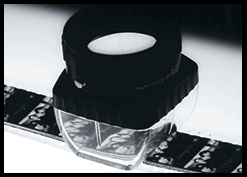Decasia by Bill Morrison
The Fragile Emulsion curated by Jon Gartenberg
Sunday, December 5th at 7:30pm $9 suggested donation.
Jon Gartenberg in attendance for discussion.
One of the most vital and richly textured art forms threatened with extinction centers around the practice of avant-garde filmmaking, particularly in 16mm format. These filmmakers treat the celluloid film emulsion as a living organism: it is an organic substance, a shimmering silver onto which they directly imprint the delicacy of their emotions. They work in relative isolation, creating their films with the hand of an artist, rather than as products for consumption by a mass audience. The style of their films most frequently challenges the conventions of linear narrative. These filmmakers recognize not only the ephemeral nature of the celluloid film stock, but also the perilous state of human existence in the modern world. They begin with their direct experiences of everyday reality and often move toward a process of abstraction in their films. They filter found objects from the world around them, and through a wide array of filmmaking techniques, including use of outdated film stock, over- and underexposure, scratching directly on the film emulsion, re-photography, and optical printing – articulate distinct, individually defined processes of creation. They evoke spiritual visions of the world in which their own livelihood is inextricably linked to the vibrancy of the film emulsion – both literally and figuratively – as a matter of life and death.
Purchase Tickets
Program Runtime 73 minutes.
DECASIA
by Bill Morrison USA, 2002, 13 minutes (excerpt), digital projection
In Bill Morrison’s found footage opus, Decasia, decomposition reaches into the farthest corners of the natural and manmade world, penetrating continents, military and religious powers, the entire animal kingdom, architectural constructions as well as the celluloid film stock itself onto which all these delicate images are imprinted.
SANCTUSby Barbara Hammer USA, 1990, 18 minutes, 16mm
In Sanctus, Barbara Hammer addresses in compelling fashion the co-fragility of both human existence and the film emulsion, the artist’s raw material onto which she creates images. The filmmaker transforms historic scientific x-ray films into a lyrical journey, reworking this found footage material into a celebration of the body as temple.
HER FRAGRANT EMULSIONby Lewis Klahr USA, 1987, 11 minutes, 16mm
In Her Fragrant Emulsion, images of 1960’s B-movie actress Mimsy Farmer float on the surface of the film emulsion, evoking erotic meditations on loves gained and lost. “The images I use are outmoded, and there’s a way that they’re dead. By working with them I’m kind of re-animating them, so I don’t really think of myself as an animator, as much as a re-animator that’s bringing these things back into some kind of life.” – Lewis Klahr
HALL OF MIRRORSby Warren Sonbert USA, 1966, 8 minutes, 16mm
Throughout Hall of Mirrors Sonbert underscores the materiality of film and the self-referential aspect of the filmmaking enterprise. Sonbert incorporates black and white outtakes from a Hollywood movie with new scenes that he photographs in color; the filmmaker works the exposed leader of the film rolls in the fabric of his movie, and captures his own reflected image while shooting one of his protagonists (Warhol superstar Gerard Malanga) in artist Lucas Samaras’ Mirrored Room. Hall of Mirrors begins and ends with the protagonists’ movements enmeshed within multiple reflecting mirrors. The film’s imagery, combined with the rock and roll soundtrack, underscores the sense of visual entrapment of the characters in their respective environments, in a manner that conveys both youthful longing and human vulnerability.
WARRENby Jeff Scher USA, 1995, 3 minutes, 16mm
Jeff Scher turns the table on his former teacher and mentor, Warren Sonbert (at a time when Sonbert was secretly afflicted with AIDS), creating an intimate dialogue between friends and colleagues, as well as a tense battle of directorial wills.
WHIPLASHby Warren Sonbert (restoration editor: Jeff Scher) USA, 1995/7, 20 minutes, 16mm
Whiplash is a compelling, multilayered portrayal of filmmaker Warren Sonbert’s struggle to maintain equilibrium in his physical self, his perceptual reality, and the world of friends and family around him, as his own mortality pressed upon his psyche. In it, Sonbert articulated the ideas and values by which he intended to be remembered. Most important among these is the theme of love between couples.
Jon Gartenberg is an archivist, distributor, and programmer. He began his career on the curatorial staff of The Museum of Modern Art, followed by jobs in the business sector both at Broadway Video and Golden Books. In 1998, he established Gartenberg Media Enterprises (www.gartenbergmedia.com), a company that is dedicated on the excavation, repurposing, and distribution of library assets in film, television, photographic, and print media.
In terms of experimental cinema, Gartenberg acquired avant-garde movies for the permanent collection of MOMA’s Film Department and restored the films of Andy Warhol. He also initiated a film preservation project with the Estate Project for Artists with AIDS, which culminated in the conservation of films by artists Warren Sonbert, David Wojnarowicz, Curt McDowell, and Jack Waters.
Currently, his company distributes avant-garde films on DVD and licenses them as well for documentary film productions. GME also advises and supports cutting edge filmmakers on the economics of experimental film production, distribution and exhibition. Gartenberg has programmed experimental films for the Tribeca Film Festival since 2003.
Presented with



